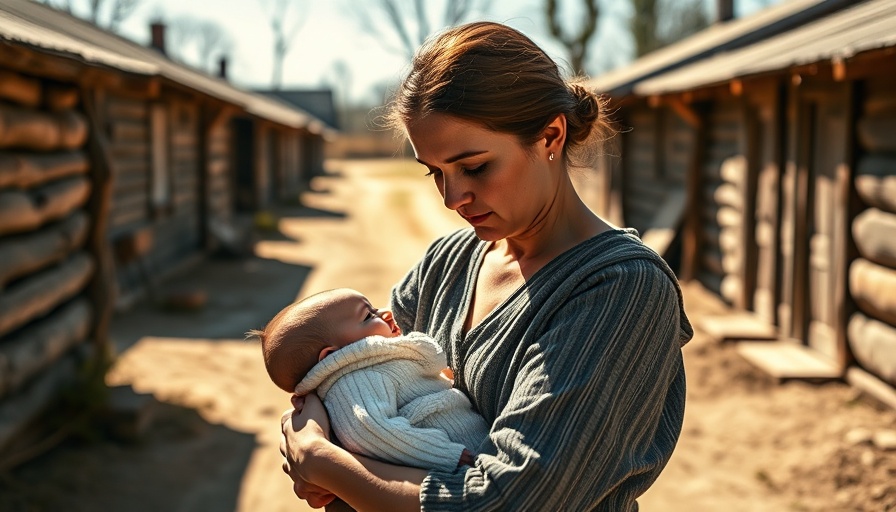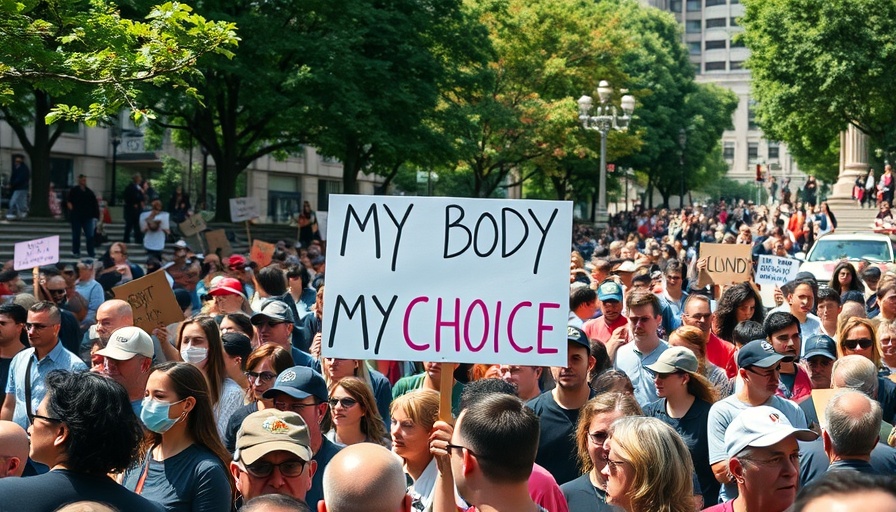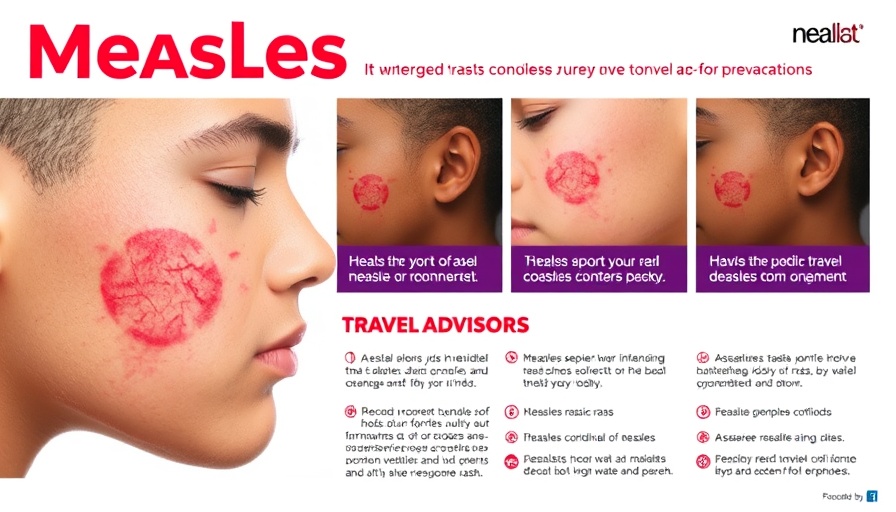
The Ongoing Measles Outbreak: A Crisis for the Mennonite Community
The recent measles outbreak hitting the Mennonite community in rural West Texas serves as a startling reminder of how quickly health issues can escalate in tight-knit communities. With incidents of infection rising, community members find themselves at a crossroads, grappling with deep-seated cultural traditions that often prioritize family and faith over modern medical practices. The visibility of this health crisis raises essential questions concerning the effectiveness of vaccination outreach in such settings.
Understanding Measles: Transmission and Prevention
Measles is a highly contagious viral disease spreading primarily through respiratory droplets when an infected individual coughs or sneezes. The current situation in West Texas has drawn attention to the importance of widespread vaccination to curb the virus's spread. Health officials emphasize that measles can lead to severe health complications, especially in under-vaccinated populations. Vaccination is a proven method of prevention, crucial for maintaining not only individual health but also protecting those who are unable to receive vaccinations, including infants and those with specific medical conditions.
The Mennonite Community's Unique Health Challenges
The Mennonite community's historical skepticism towards vaccinations creates an additional hurdle in addressing the outbreak. Generally, these communities favor practices rooted in tradition and emphasize self-reliance, often leading to hesitancy toward external medical interventions. As the outbreak continues, families within the community face increased anxiety over sickness and medical intervention. In this backdrop, local leaders play an instrumental role, often facilitating discussions that acknowledge both cultural beliefs and the necessity of modern health care.
Building Trust Through Community Outreach
In light of the outbreak, health officials have stepped up efforts to engage effectively with the Mennonite community. They are launching targeted outreach campaigns focused on providing accurate information regarding vaccinations and the health risks associated with measles. Local leaders are being tapped to act as advocates, fostering a connection between health officials and community members. Free vaccination clinics are being established to make access easier, signaling a collaborative approach to combat this public health crisis.
Striking Balance: Tradition Meets Medical Needs
The ongoing outbreak spotlights the complexity of reconciling traditional beliefs with modern medical practices. Community conversations are essential in giving residents a voice and helping them process their thoughts and fears regarding vaccinations. It’s this balance of respect for traditions and the recognition of health as a communal value that may lead to more informed choices moving forward.
Looking Forward: What Lies Ahead for the Community
Ultimately, the response to the measles outbreak in rural West Texas is also a reflection of how communities adapt to crises. By actively engaging with health information and being open to discussions about vaccination, there lies the potential for change and improved health outcomes. As families navigate this tumultuous period, the strength of their ties—rooted in cultural traditions—may serve as a fortifying force, enabling them to emerge resilient from this health crisis.
While the complications arising from the outbreak are daunting, this situation delivers an opportunity for communities to reassess their healthcare practices and open to integrating necessary medical interventions into their traditional frameworks. The call to action for communities, particularly amid such outbreaks, emphasizes the importance of being informed and willing to engage in proactive health measures.
 Add Row
Add Row  Add
Add 




 Add Row
Add Row  Add
Add 

Write A Comment